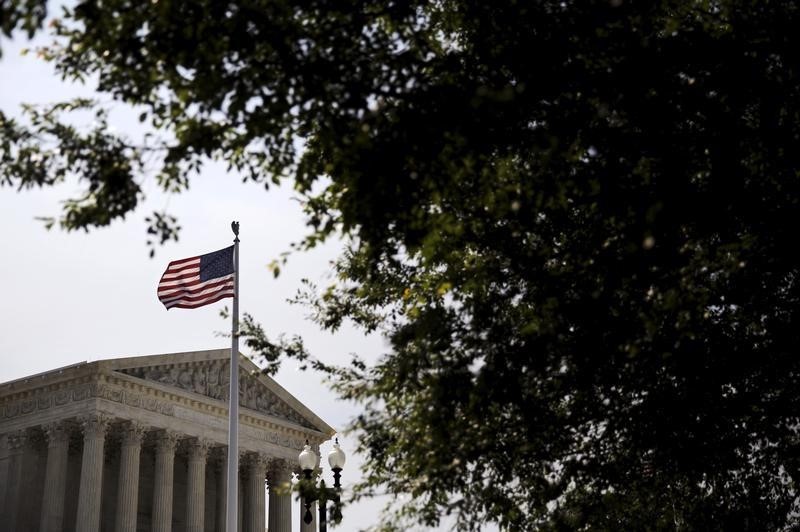By Lawrence Hurley
WASHINGTON (Reuters) - The U.S. Supreme Court will consider on Monday a conservative legal challenge targeting public sector unions when the justices take up a case brought by non-union teachers in California who object to being compelled to pay for collective bargaining.
The dispute pits 10 public school teachers and the Christian Educators Association International against the California Teachers Association, an influential union with 325,000 members and a history of backing liberal political causes.
The case could erode organized labor's influence by allowing public sector workers who are not union members but are forced under state law to pay "agency fees" equivalent to union dues to stop providing this money. This would reduce the income and political clout of public sector unions.
Such a ruling would apply in 25 U.S. states that do not already have what is known as "right-to-work" laws that prohibit workers from being forced to pay fees to a union.
A ruling in favor of the non-union teachers would be a blow to organized labor because unionized teachers and other civil servants in states without right-to-work laws comprise its main power base.
The 10 teachers assert that California law violates non-union workers' free-speech rights under the U.S. Constitution's First Amendment by requiring them to pay the "agency fees" toward collective bargaining activities.
The teachers who joined the lawsuit are asking the nine justices to overturn a 1977 Supreme Court ruling that allowed public-sector unions to collect fees from workers who do not want representation as long as the money is not spent on political activities.
San Bernardino County teacher Karen Cuen, one of the plaintiffs, quit the union in 1994. That means she already opted out of paying for political activities. But she said other union spending is problematic, too.
"I think pretty much everything the union does is political. I feel like being a public employee we shouldn't be bargaining with taxpayer money. There's an inherent conflict of interest," Cuen said.
Eric Heins, the union's president, noted that state law requires the union to represent all workers during collective bargaining, the process in which unions negotiate contracts with employers on behalf of employees, regardless of whether they are members.
Undermining the current system would mean some workers would benefit from what the union negotiates on their behalf but they would "not have to pay a dime," Heins added.
The Supreme Court will hear an 80-minute oral argument on Monday, with a ruling due by the end of June.
